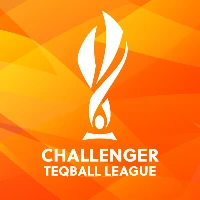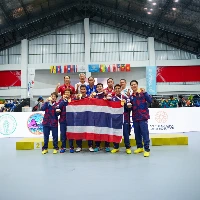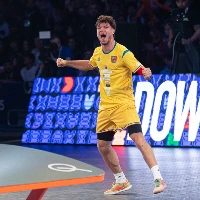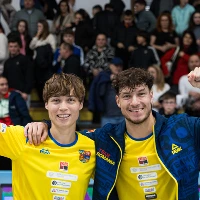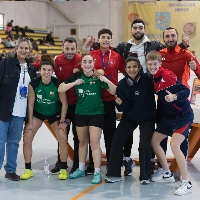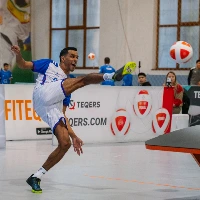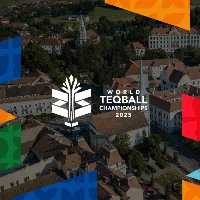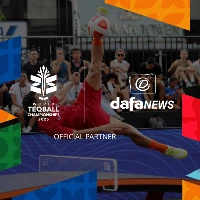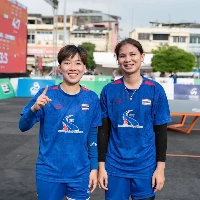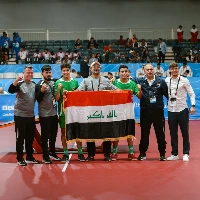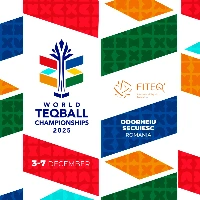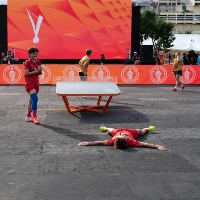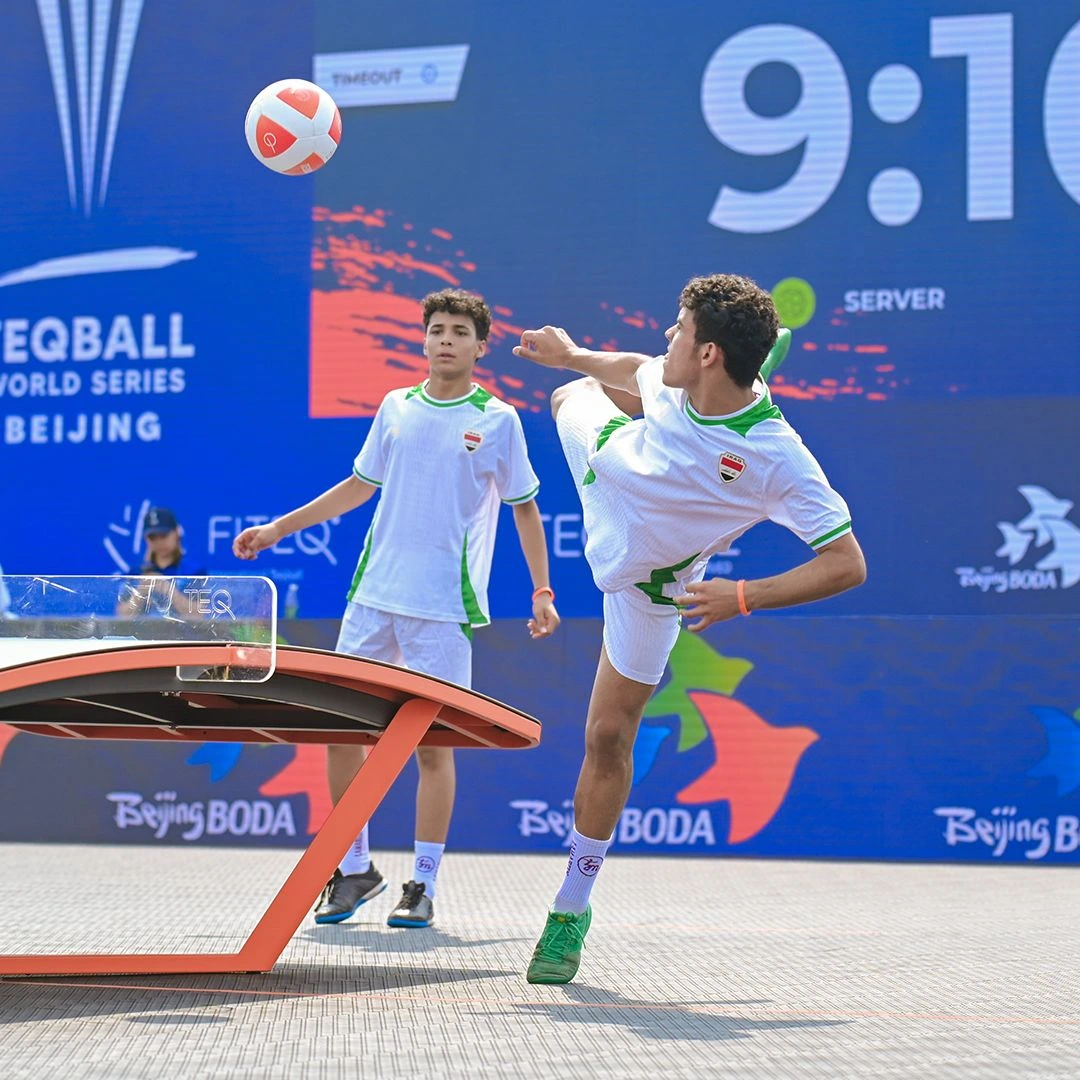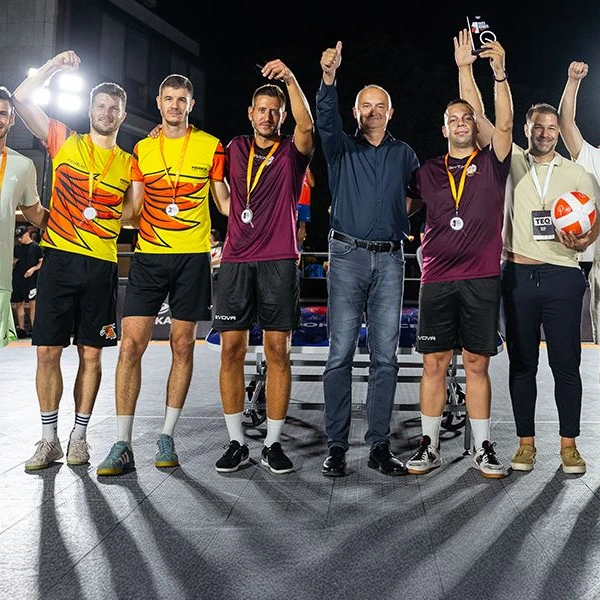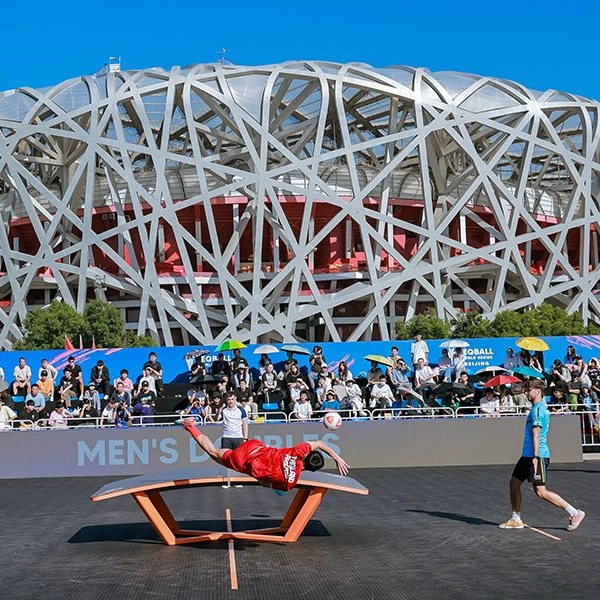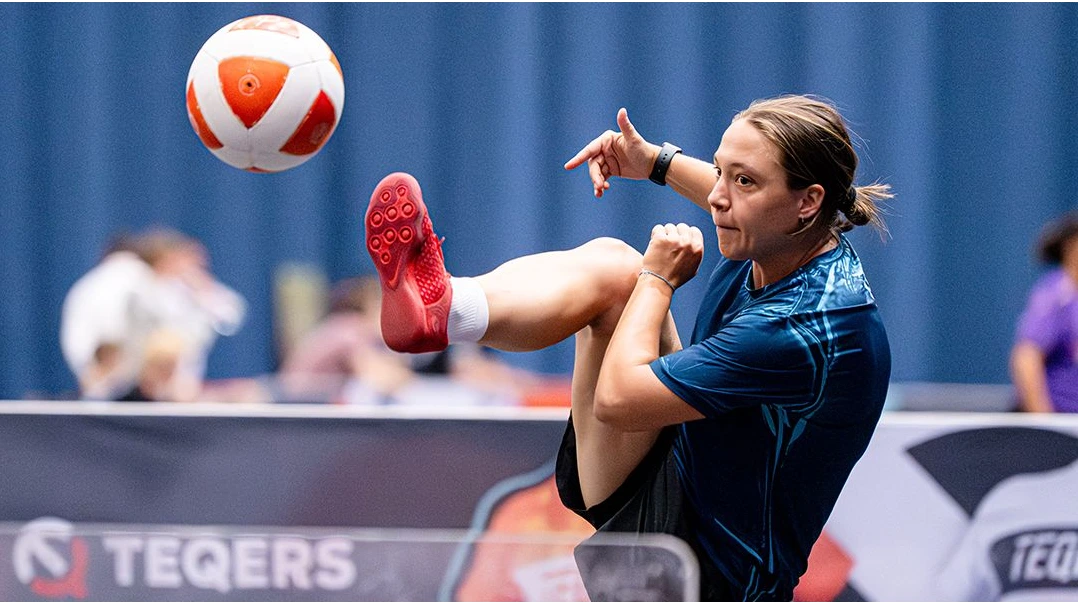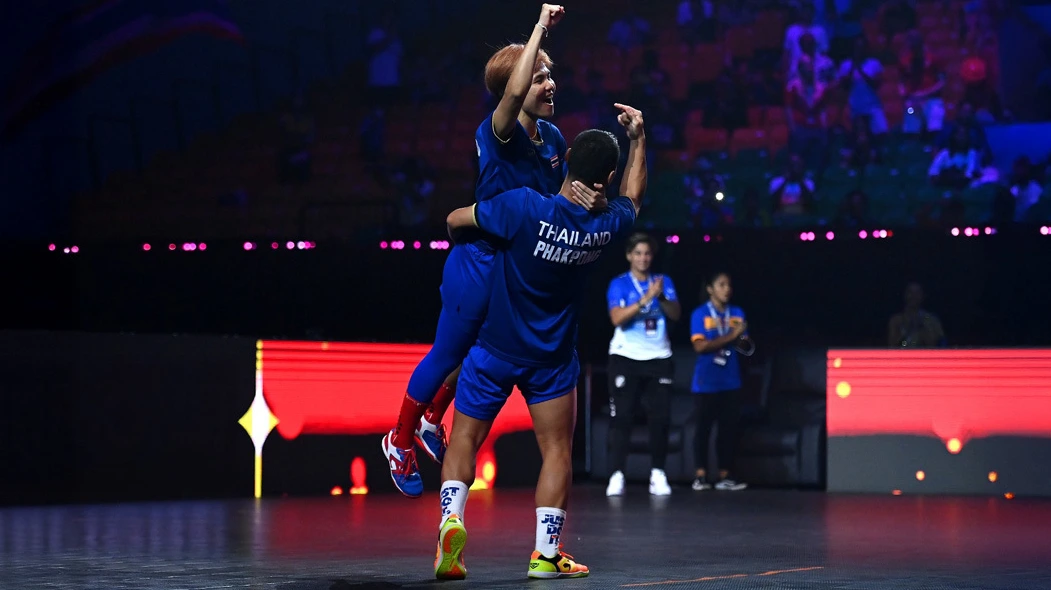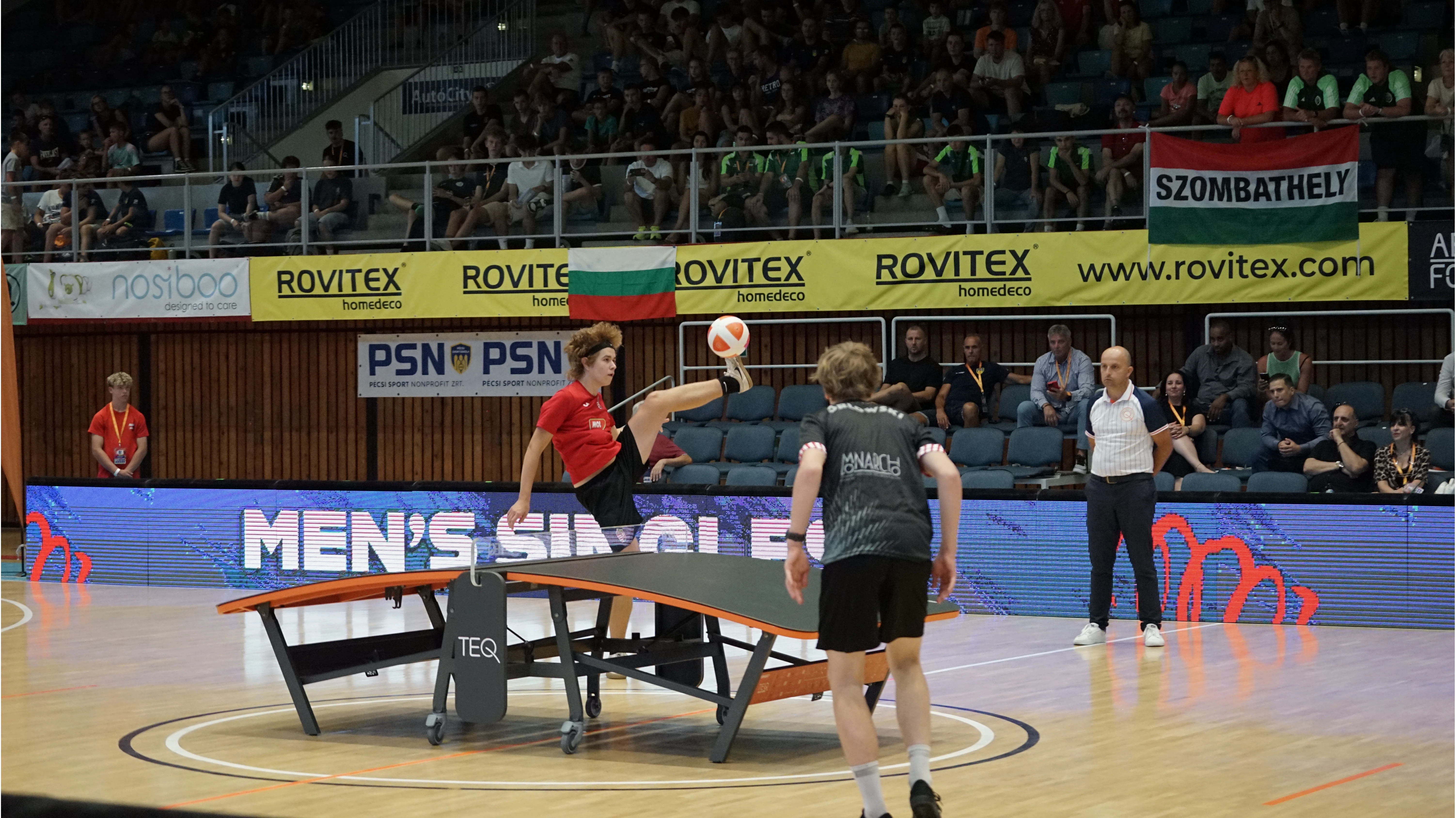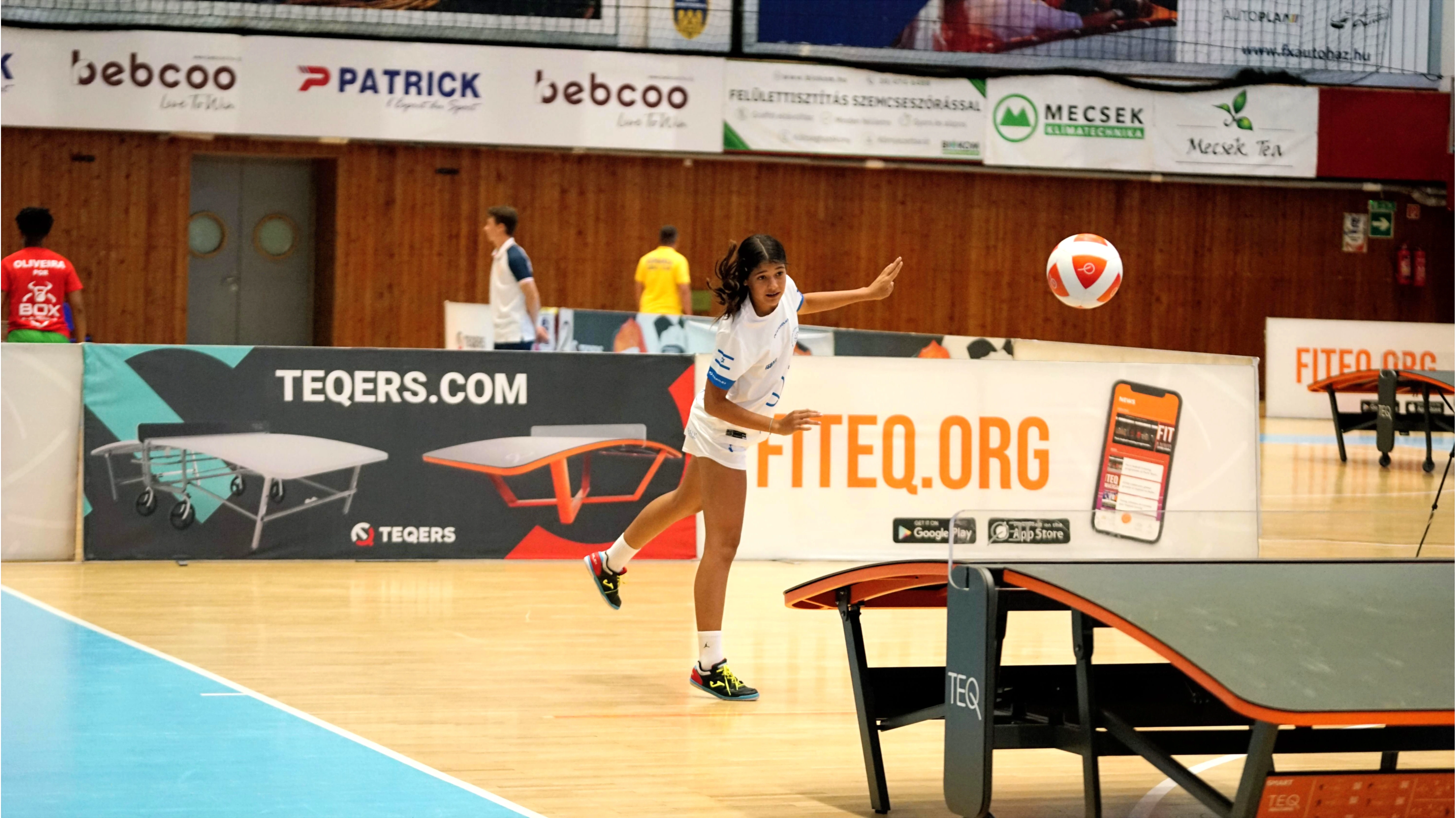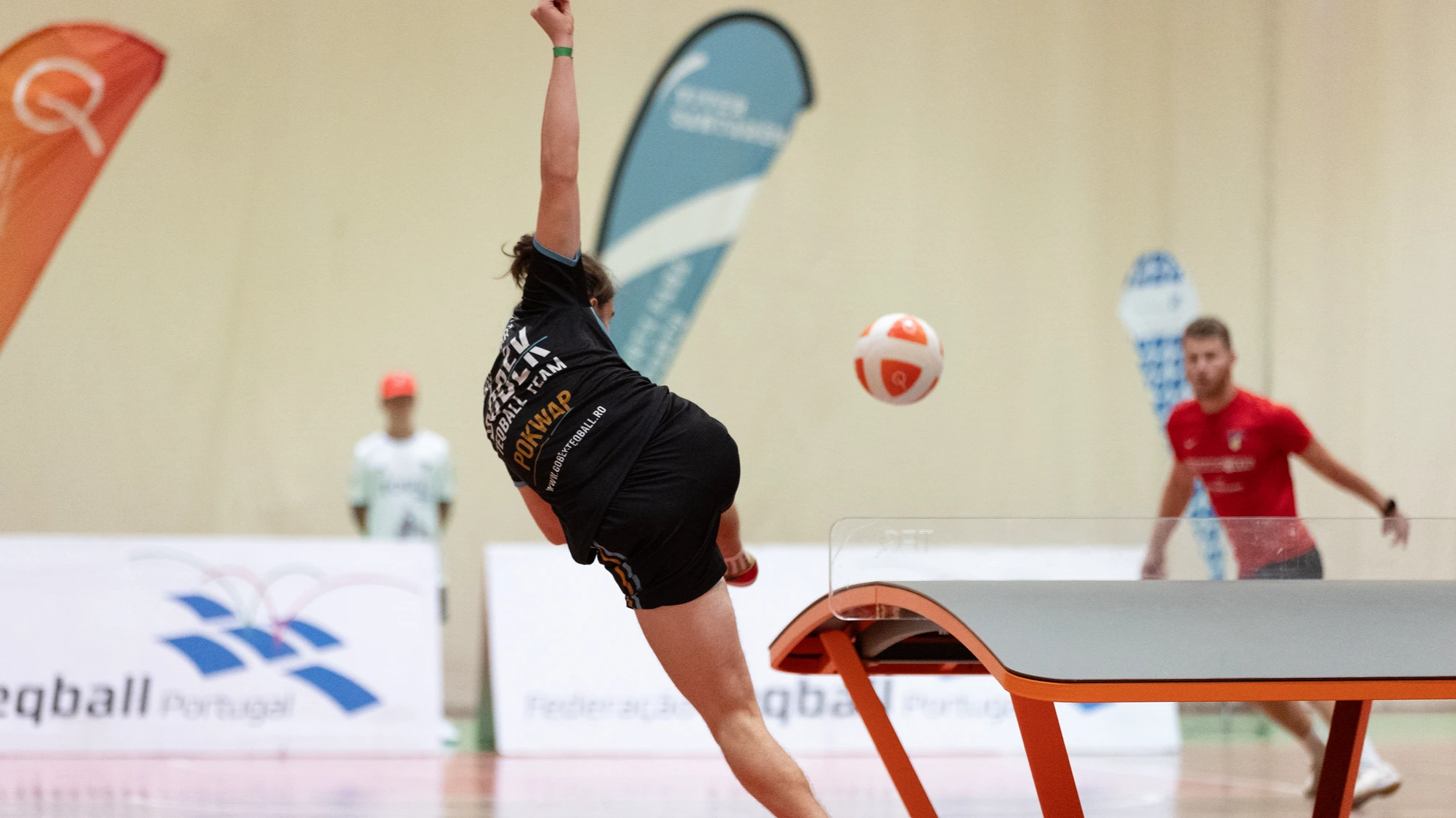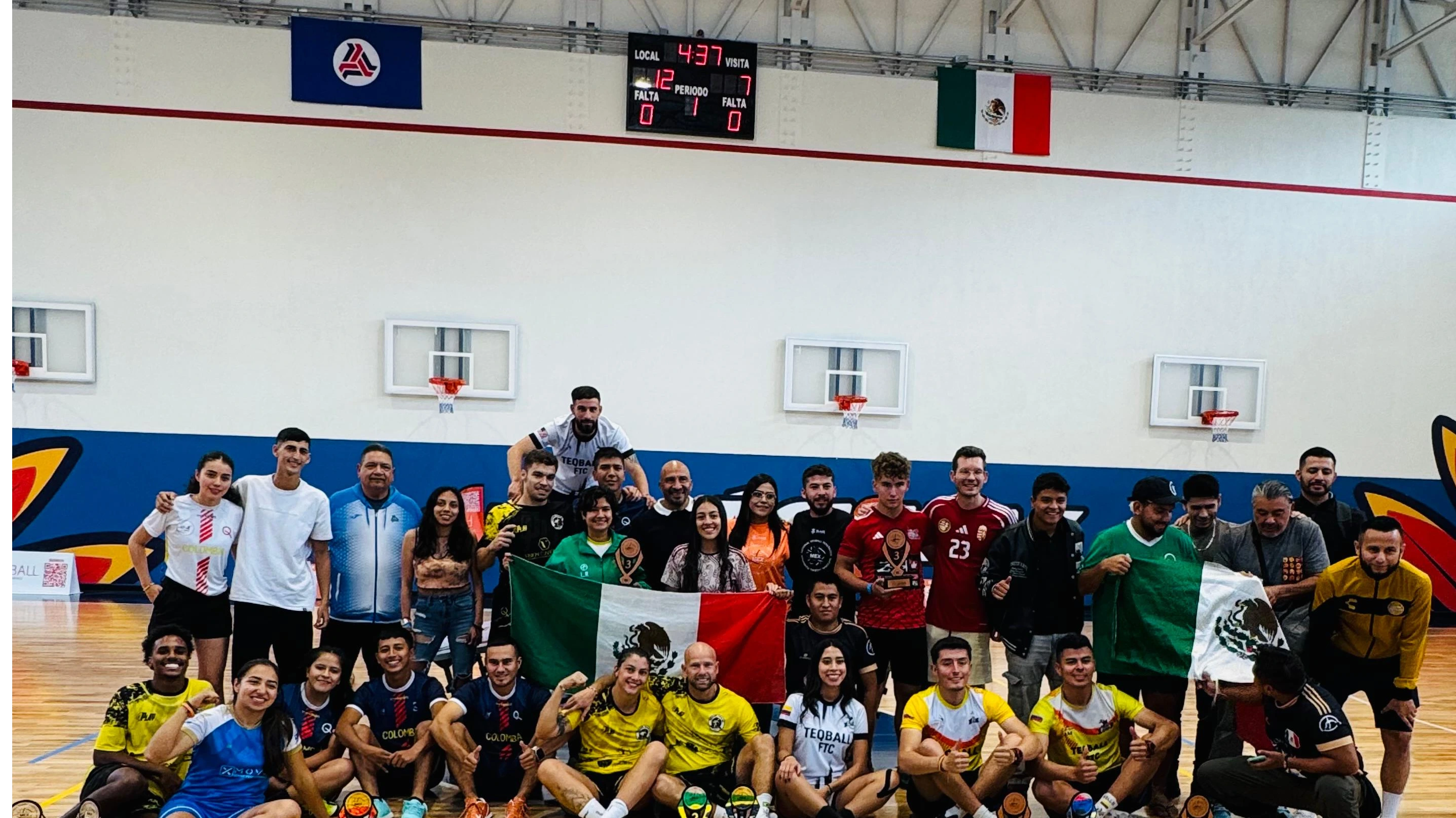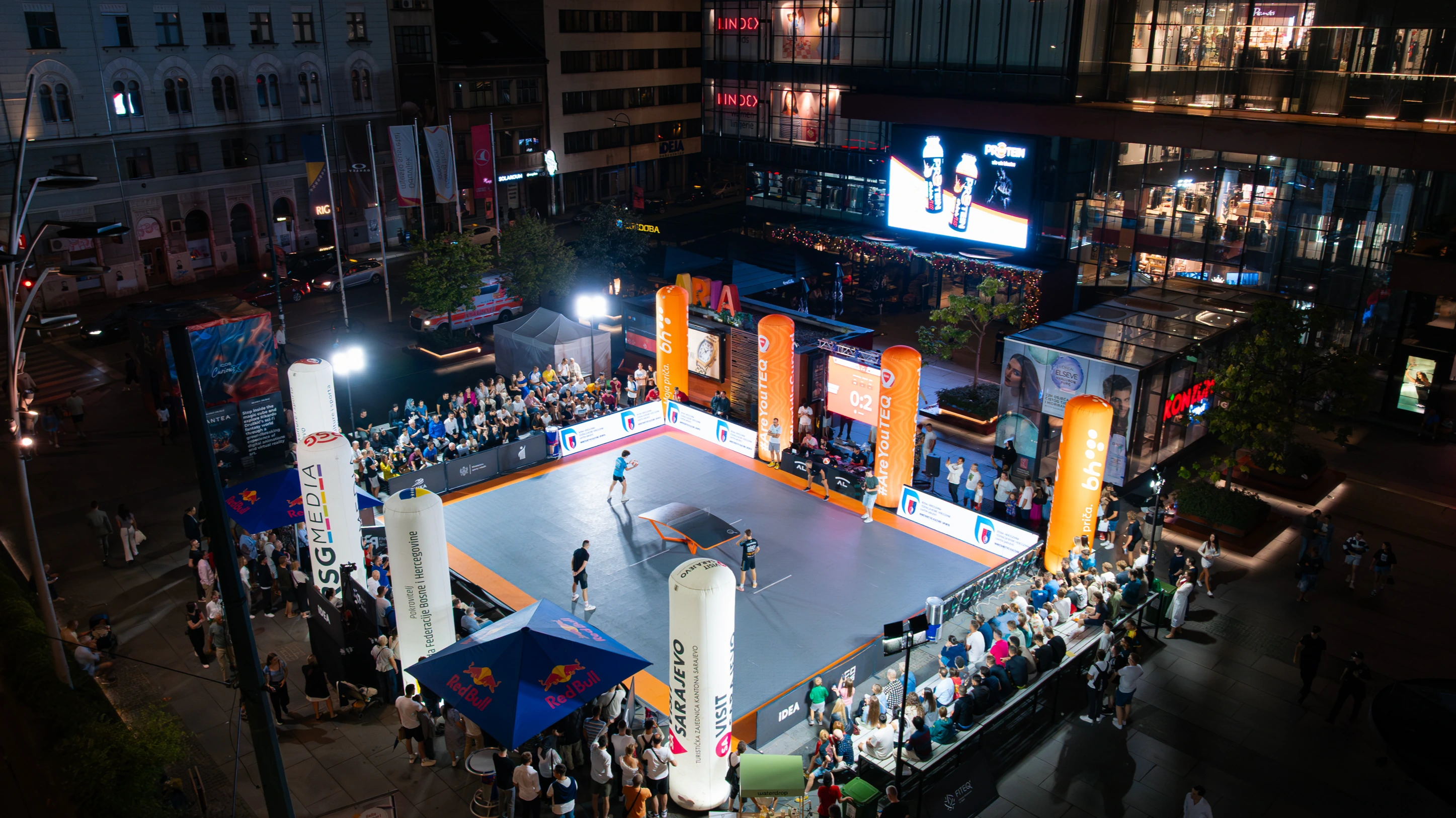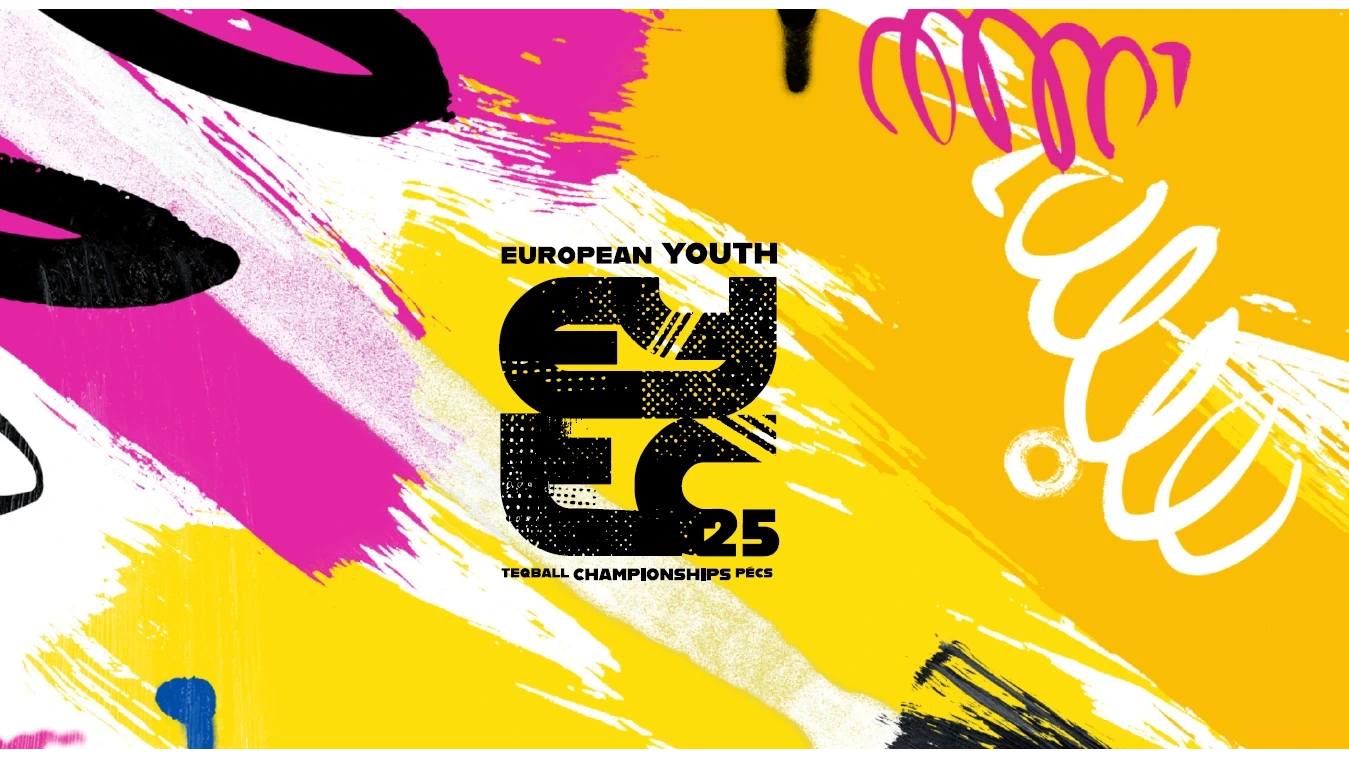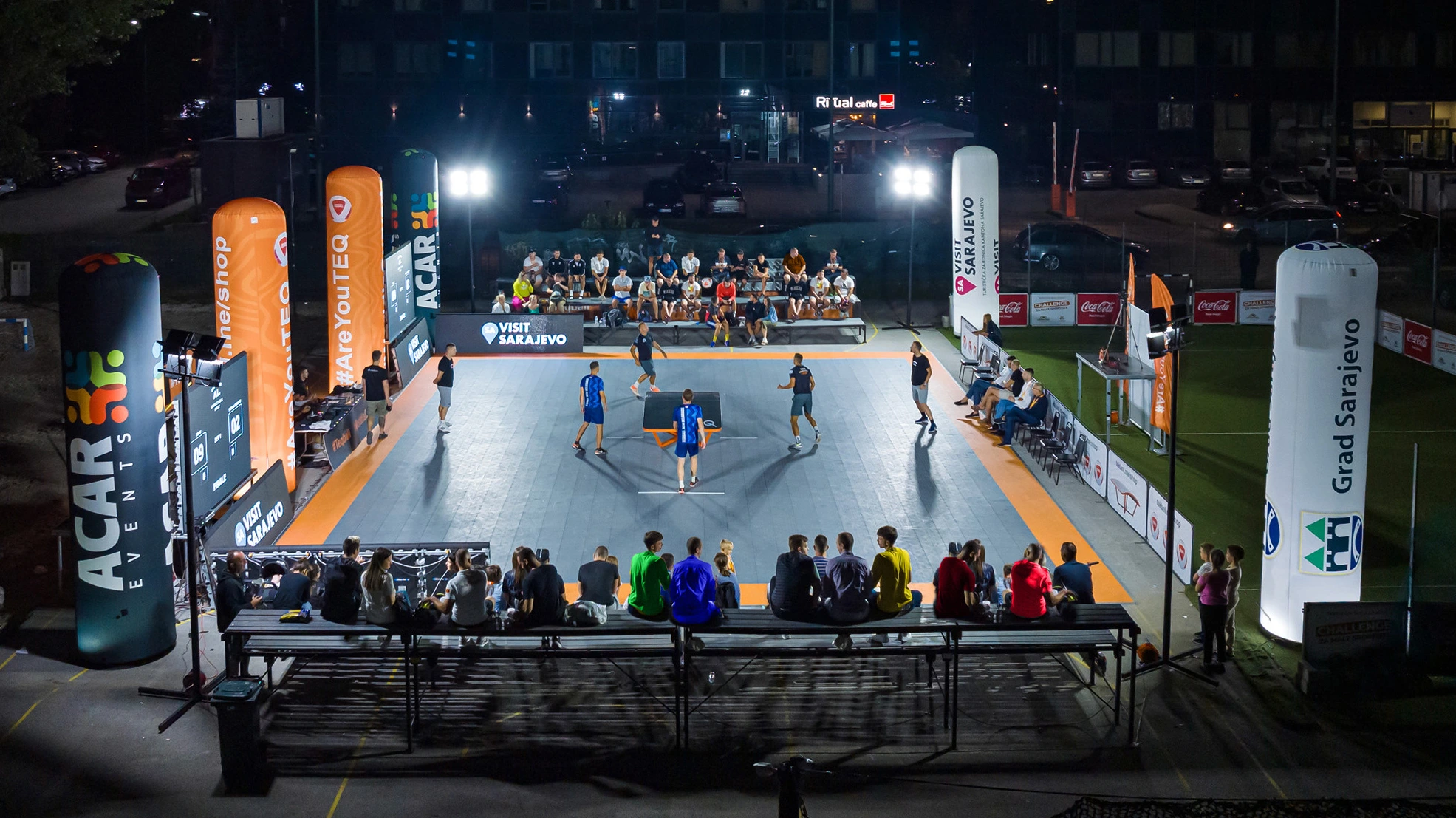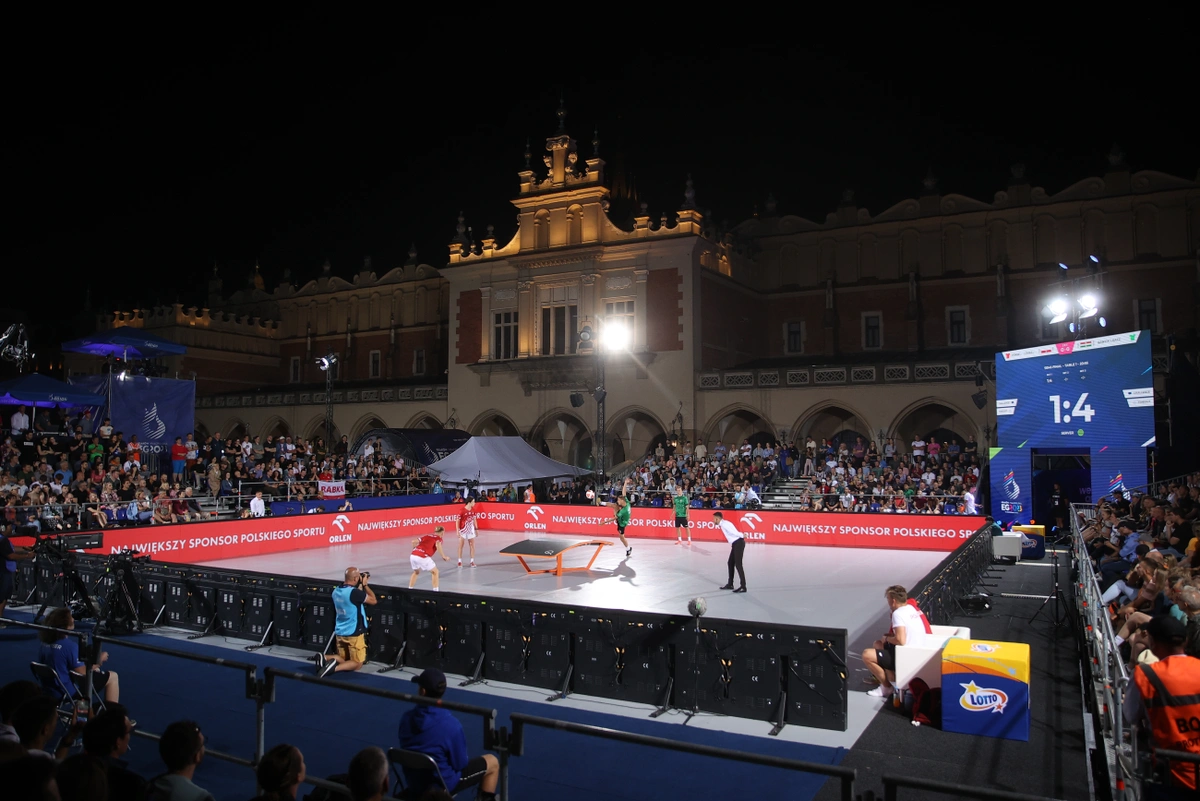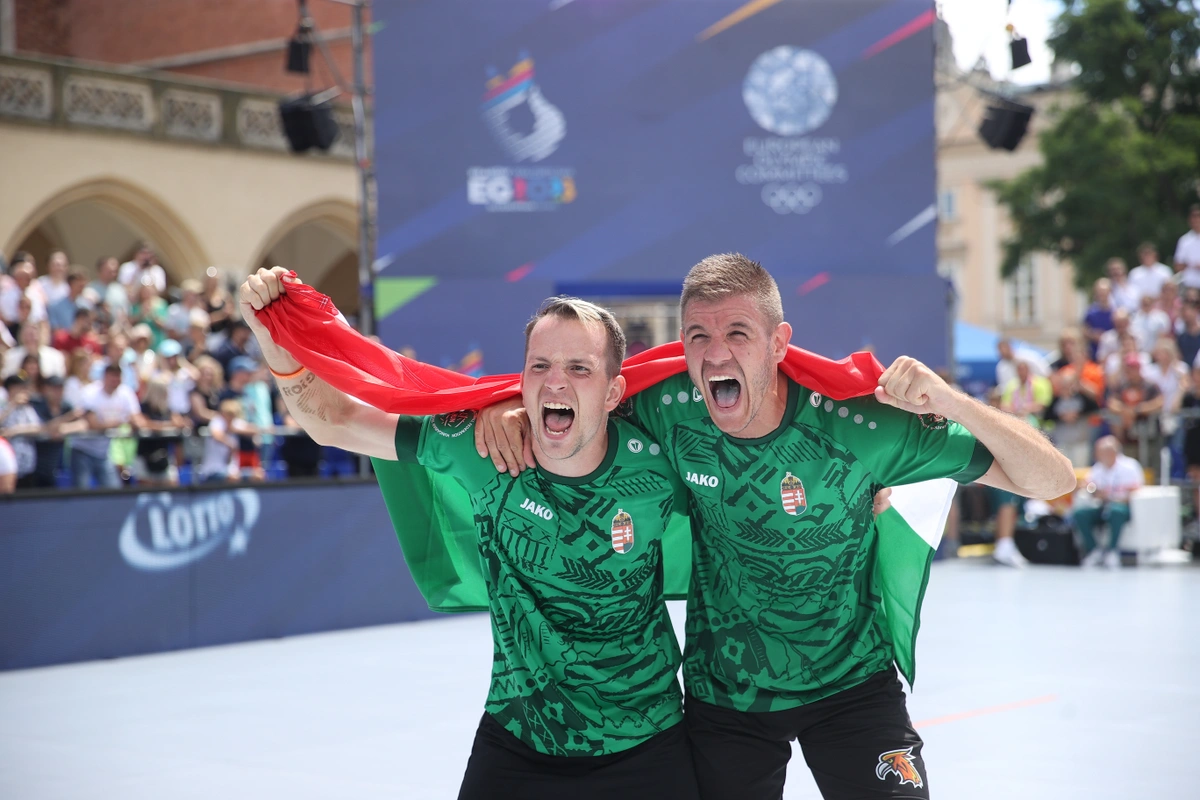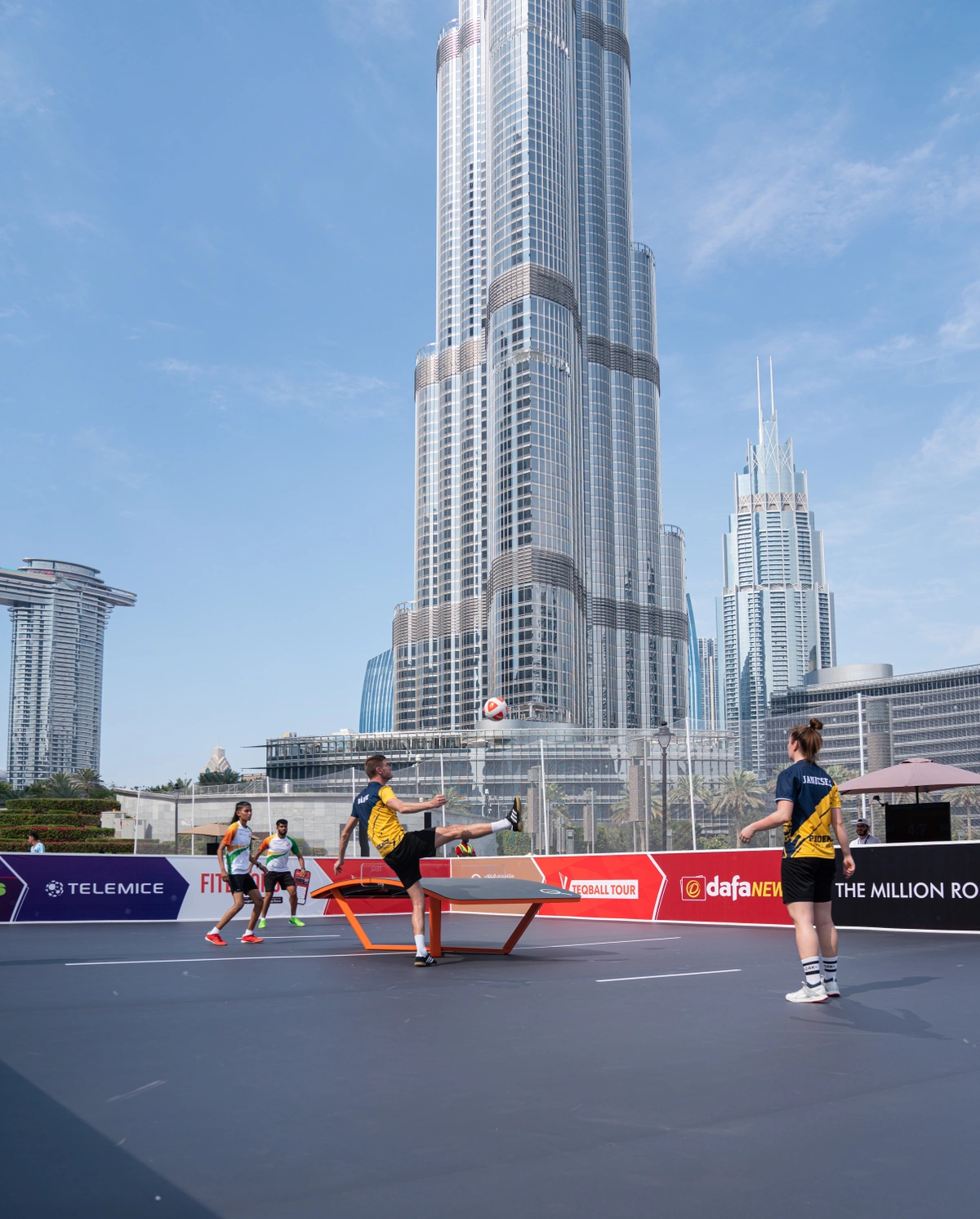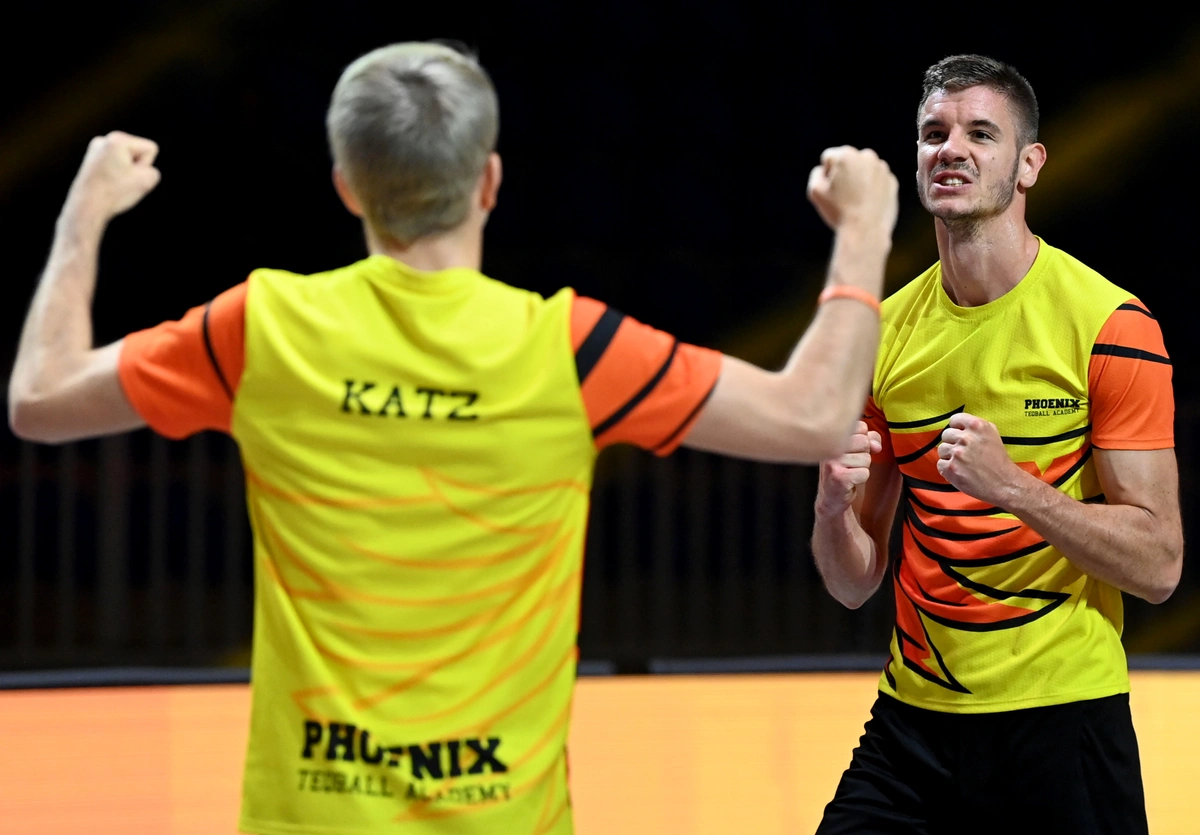
Heroes of Teqball: Csaba Banyik
Since July 2023, Csaba Banyik has been able to call himself not only world but also European champion on Teqball, as he won the men's doubles category with Balázs Katz at the first continental tournament in the history of the sport. Currently, in the top 5 of all world rankings, it is no exaggeration to say that he is one of the defining players of the recent past and present.
Behind every teqer is a story, a life to be shared.
Everyday people with no ordinary skills.
An exclusive feature through fiteq.org with the best athletes of Teqball tell their own backgrounds whether it is destiny or something else that bring them to our beloved sport.
This is them, our teqers, our heroes.
"I got introduced to Teqball in 2015 at the University of Physical Education, I was a student of TF at the time. After 2014, they organized a Teqball tournament every year, I joined in the second year with my friend, Adam Blazsovics, and then we started to take it more seriously." - tells Banyik about the beginnings, who also adds that he played judo for seven years as a child, then switched to football, which he then finished at university. He revealed that as a child he was a fan of one of Teqball's ambassadors, Ronaldinho, but then being a goalkeeper, Petr Cech was also his favourite.
Banyik believes that the special nature of the sport comes from the fact that not only Europeans, but almost everyone likes football, and this is a genre that brings a bit of novelty to it. In his opinion, the beauty of football is the tradition itself, but the disadvantage is that we may not even see a goal in 90 minutes, however in Teqball, a nice point or action can come every 30 seconds, but it is still close to football, and therefore the general public can relate to it.
Banyik/Katz against Pokwap/Duszak in Krakow at the European Games
As he says, football players with better technique can really move to the table more easily, but athletes from other backgrounds also come. Some came from combat sports, there are also those from table tennis or ice hockey, but obviously the majority from football. According to him, two things are very important: mobility and ball skills, and when these two meet, it is the perfect combination.
Banyik is also determined to contribute to Teqball and its development off the field, for example by sharing his experience in preparation methods:
"When Covid broke out, I wanted to write a methodology book, because if I had been attending the TF for years, I should use something from it, but then I couldn't finish it. I teach juniors, and I used to be a football coach, but I wouldn't compare the nature of the training to that, but rather to table tennis. However, to me, nothing is like Teqball. In addition, there are tactical parts, which we solve mostly by downloading the matches before the flights, then analyzing them on the plane, and then putting together the strategy for the next competition. And everyone gets their fitness part for themselves."
Currently, Teqball does not make it possible to provide an independent source of livelihood for athletes, but this is the fate of pioneers. Banyik had also worked hard until now, but his "civilian" life had just taken a turn:
"I quit my job just last month, not because I will be able to make a living from Teqball, but because there are so many foreign competitions waiting for us that it would not be compatible with work. In addition, I will start studying law in September, so that would have been a lot altogether. But it is true that, with the exception of the last month, I have worked with Teqball all the time, most recently as an event organizer for the Hungarian E-sport Association, 80% of which I was able to do from my home office. At times, it happened that during an American competition, I had to get up at 2 in the morning to join an online meeting. In the long term, I would like to become a sports lawyer or a sports diplomat, and it would be icing on the cake if it happened within Teqball."
In the last 11 events, Banyik/Katz stayed unbeaten and holds the longest winning streak in the history of Teqball.
When it comes to change or difficult decisions, Banyik is not afraid to go through them. For example, when they decided to continue on separate paths with Adam Blazsovics in the men's doubles, and he teamed up with Balazs Katz. There is hardly any change in success and effectiveness:
"To this day, we are very good friends with Adam, but we decided to separate for a while and see how it is. We did not get the expected results because before that we did not lose to anyone except the Serbian duo for about 4-5 years. Then in our last competition and the one before that, we were also defeated by the Hungarians, which left a bad taste in our mouths, that's when we decided to change. But it's in the mix that we'll get together again in the future."
Last year, he missed the World Championship, but this year he is making rapid strides on the qualification path. Two of the three rounds were held, and he was able to triumph in both doubles and mixed doubles at both stations. He also reckons that if injury or a shocking downfall does not come in the way, he will be there at the 2023 World Cup. He would rather not talk about his chances there, at least not until the Asian tour due at the end of the summer when he can again face off with the Thais, whom he has not met since the Dubai tournament. Although he believes that the women players are stronger and can therefore pose a greater challenge in mixed doubles, he also remembers that they were also made to sweat hard by a Thai duo in the men's doubles final in Dubai.
The 'King of Smashes" with Zsanett Janicsek in Dubai, right in front of the World's tallest building, Burj Khalifa.
He also notes that he much prefers to play in doubles, whether it is men's or mixed, because there his talents can stand out better, as an individual he considers himself a bit sluggish due to his height.
Banyik believes that Teqball is still an extremely young sport, whose international map and landscape will constantly change. He also shared a story about it:
"I expect many changes, for example, approx. 1-1.5 years ago, we saw the first signs that Asians would be good, and the women almost already belong to the elite. I expect an even bigger jump from the Brazilians because relatively few people from there go to the tournaments in America or Europe due to financial reasons. A year ago, we were invited with Zsanett Janicsek to an event in Rio, where we found out that there are countless couples who match the level of the best Brazilians. We saw children with such skills that we could not believe our eyes. But they could not compete together because they shared the shoes. Even on Instagram videos, I have never seen anything like what they did, but they do not have the money to travel to the next city, let alone Europe. But if someone starts to support them, just watch out…”
He adds the sport is moving in the right direction, but he could imagine even more competitions and more possibilities, which could bring a step forward in that the competitors do not only start at regional events, thus Teqball could develop even more internationally. He also notes that he feels lucky because the Taksonyi Teqball Association was recently founded, backed by a serious construction industry company, which means that they can compete almost anywhere in the world.
Who will stop the dynamic duo?
Turning to the European Games, he talks about how everyone was able to get a taste of the direction Teqball is heading, i.e. it wants to become an outdoor sport with all its advantages and disadvantages. According to him, if this direction remains, many will change their tactics due to weather factors, especially the role of wind. But one thing he will never forget was the atmosphere:
"Regarding the surrounding, I got what I expected: an incredible big sports event, with 8,000 athletes, with an Olympic village, as we saw on TV, for example, during the Tokyo Olympics. The whole thing was beautiful, together with the organization, and also the way the Hungarian Olympic Committee was always at our disposal. It was the first time that I won the medal not for my club or myself, but for my country. It was a very uplifting feeling. There was no world ranking point or prize money for it, we played to achieve success for our country. You also play for success at the World Championships, but in the meantime, you can acquire material goods that can cover your racing throughout the year and doing that in front of more than 65.000 people, was just unbelievable."
Banyik finally concludes his thoughts with his long-term plans and goals for Teqball:
"I will play as long as my joints can take it, and we will see how long that is. But I am actively preparing for the life that follows, be it coaching or sports management, which I am already doing as the president of the Phoenix Teqball Academy, which has been the most successful association in the world so far. And there is the legal career that I could imagine also within Teqball.”
